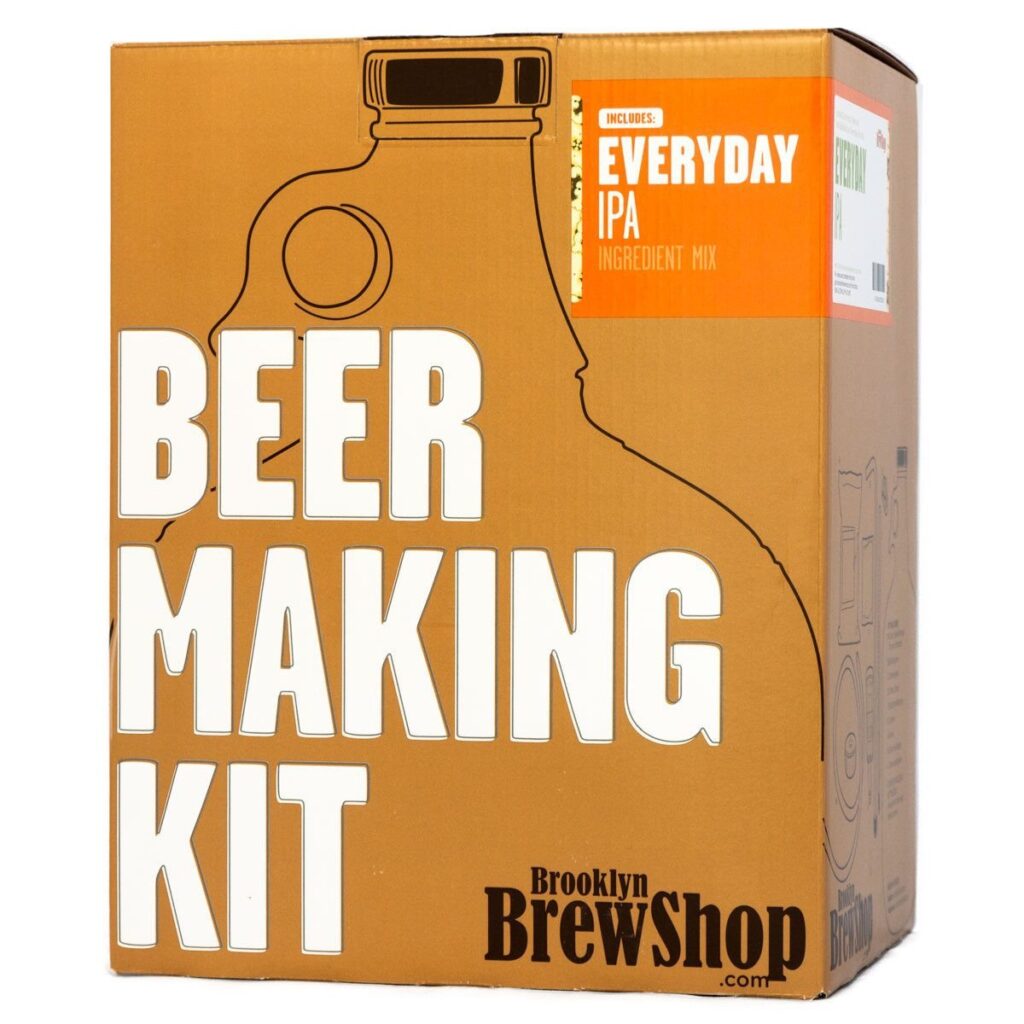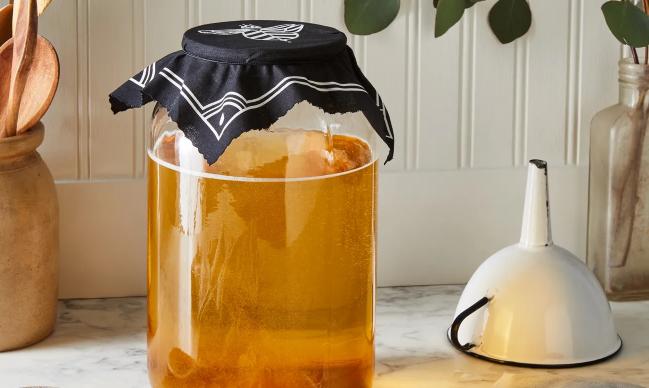Homemade fermented drinks can be a great way to enjoy the taste of traditional drinks and potentially make them healthier. However, homemade fermentation can lead to serious health risks if not done correctly.
Home fermentation is becoming more popular by the day, but it can be risky if not done correctly.
That’s why FarmSteady created their all-in-one kits to help make the process easier and more enjoyable. With these kits, you can ferment drinks with peace of mind knowing that you have everything you need to do it safely — from instructions to supplies. Check it out here.

FarmSteady’s all-in-one kits provide the tools to create delicious and safe homemade drinks without worry – so get yours today and start fermenting!
The Dangers of Improperly Homemade Fermented Drinks
Home brewing is becoming increasingly popular as people explore the art of fermenting at home. While the process can be immensely rewarding, it is important to understand the risks associated with fermentation to keep yourself and your loved ones safe.
Let’s look at some of the potential dangers associated with homemade fermented probiotic drinks that don’t receive due care and attention during their fermentation process.
Bacterial Contamination
One of the most serious risks associated with homebrewing is bacterial contamination. When ingredients are not properly sanitized, or when equipment isn’t cleaned properly between uses, harmful bacteria can quickly colonize and contaminate a batch of homebrewed beer or wine.
These bacteria—including but not limited to E. coli, Salmonella, and Listeria—can cause severe illness if ingested. Therefore, you must take all possible precautions to prevent contamination from occurring during your fermentation process.
If your beverage comes into contact with anything unclean – such as bacteria-laden utensils or even dirty hands – it can become contaminated and potentially lead to foodborne illnesses in those who consume it.
To prevent this from happening, always use clean equipment and clean your workspace while making your drinks so that any potential contaminants are eliminated quickly and easily.
Yeast Infections
In addition to bacterial contamination, improper sanitation can lead to yeast infections in your brews. Yeast cells are like any other living organism; they need food, warmth, and moisture to survive and reproduce.
If these conditions aren’t met—for example, if your brews aren’t kept at a consistent temperature or if they’re exposed to too much oxygen—yeast cells can become infected with unwanted organisms such as mold or mildew, which then taint the flavor of your homebrews and make them unsafe for consumption.
Alcohol Poisoning
One of the most dangerous risks associated with homebrewing is alcohol poisoning, which can occur when too much alcohol is consumed in one sitting. Alcohol poisoning occurs when ethanol levels in the bloodstream exceed 0.4%, which can be fatal if left untreated.
It’s important to monitor alcohol levels carefully during fermentation so that you don’t produce overly potent drinks that could put people at risk for alcohol poisoning if consumed responsibly over time without proper supervision by an experienced brewer who understands how yeast reacts and behaves under different temperatures and conditions.
To avoid this risk, it’s important to monitor your fermentation process closely and use an airlock or other device to prevent the release of carbon dioxide gas during the carbonation process. This will help ensure that you don’t end up with an overly alcoholic product that could be dangerous to drink.
Foodborne Illness
Another risk associated with improperly fermented beverages is a foodborne illness. Improperly fermented drinks often contain bacteria or mold, which can cause serious health issues if ingested.
To avoid this risk, always use clean equipment when fermenting, and follow all instructions carefully when creating your beverage. It’s also important to inspect each bottle before consuming it to ensure that nothing has gone wrong during the fermentation process.
Carbonation Problems
Another potential issue that could arise from improper fermentation is over-carbonation or under-carbonation. Carbonation is essential to many homebrewed drinks, as it adds flavor and texture to them. However, if too much carbon dioxide is added during fermentation, or if not enough is added, it can lead to an extremely carbonated or flat beverage that doesn’t taste good. To avoid this problem, measure your ingredients carefully and follow recipes closely.
Related: How To Carbonate In Mini Kegs
Making Your Fermented Drinks at Home
Lightly fermented drinks are an excellent source of beneficial bacteria and yeast that help to support digestive system health.
Beet Kvass
This wild ferment is stunning, surprisingly addictive, and nearly effortless. Beet kvass is a traditional Eastern European drink made with beets and salt, fermented with whey or a probiotic capsule.
Ginger Bug
Another traditional Eastern European favorite, the ginger bug is a delicious and refreshing ferment that’s easy to make at home. All you need is ginger root, sugar, and water. After about five days, the ginger bug will be ready and used to make your own fermented soda at home.
RELATED: Making Ginger Beer (Without Equipment!)
Fermented Vegetable Brine
Next is fermented vegetable brine, a tangy and delicious ferment perfect for salads, sandwiches, tacos, and other dishes. To make this recipe, combine your favorite vegetables—such as peppers, onions, carrots, and celery—with water and salt. The longer it ferments, the more flavorful it will become.
Milk Kefir
Homemade milk kefir, a thick, yogurt-like fermented beverage, has just been included in the dairy area of several supermarket shops. With the aid of milk kefir “grains,” the kind of SCOBY required to generate this ferment (these kefir grains don’t contain grains but do somewhat resemble them in appearance), you can make kefir at home.
Water Kefir
Water kefir is similar to milk kefir, but it’s made with sugar water or coconut water instead of using dairy products. It’s a great way to make your probiotic-rich drink without using dairy. You can add any combination of fruit juices, herbs, spices, or other flavorings to your kefir and customize it to your taste.
Jun Tea
Jun tea is a fermented drink made from raw honey and green tea. This unique beverage has a sweet flavor similar to kombucha but with a lighter body and a slightly bitter aftertaste. To make it, brew your favorite green tea and add it to a jar with some honey or raw sugar. Let the mixture sit for about a week, and you’ll have your jun tea ready to enjoy!
Hibiscus Ginger Soda
If you’re looking for an all-natural and delicious alternative to traditional sodas, try making your hibiscus ginger soda. Start by making a simple syrup with sugar and water, then add hibiscus tea bags and some grated ginger.
Homemade Alcoholic Ginger Beer
Homemade alcoholic ginger beer is a great way to enjoy a refreshing beverage while adding an extra kick. All you need is yeast, ginger, and a bit of sugar. After you mix everything and the fermentation process is complete, you’ll have a delicious alcoholic beverage perfect for any occasion.
Switchel
Switchel is an old-fashioned drink with apple cider vinegar, ginger, and sweetener. Its tart and sweet flavor make it a great summer drink and packed with vitamins and probiotic drinks. Mix all the ingredients in a jar to make a switchel and let it sit for a few days. Once the fermentation process is complete, your switchel will be ready to enjoy!
Homemade Kefir
Kefir is a fermented drink made from milk, water, and kefir grains. Its tart and slightly fizzy flavor make it the perfect beverage to enjoy on its own or add to your favorite recipes. To make homemade kefir, mix milk and water, add some kefir grains, and let the mixture sit for a few days. Once it’s done, your homemade kefir will be ready to
Natural Ginger Ale
Natural ginger ale is a refreshing and tasty homemade drink perfect for those hot summer days. Mix fresh ginger with sugar, water, and some yeast to make it, and let the mixture sit for about four days. After that, your homemade ginger ale will be ready to enjoy!
Conclusion
Homebrewed drinks can be a great way to enjoy something different while experimenting with flavors and recipes without breaking the bank—but there are also some potential risks involved with making them yourself at home.
Improperly fermented foods and other drinks may contain harmful bacteria or contaminants that could make people ill; they may also be overly carbonated or have incorrect amounts of alcohol content, which could ruin their flavor or cause health issues if consumed in excess.
By following proper sanitation procedures and using a hydrometer for measuring specific gravity during fermentation, however, homebrewers can minimize these risks while still enjoying their homemade beverages safely!
Read next: 7 Easy Ways To Add Personalization To Your Beer Koozies and Drink Counting Beer Koozies – Personalized Gifts for Brewers




